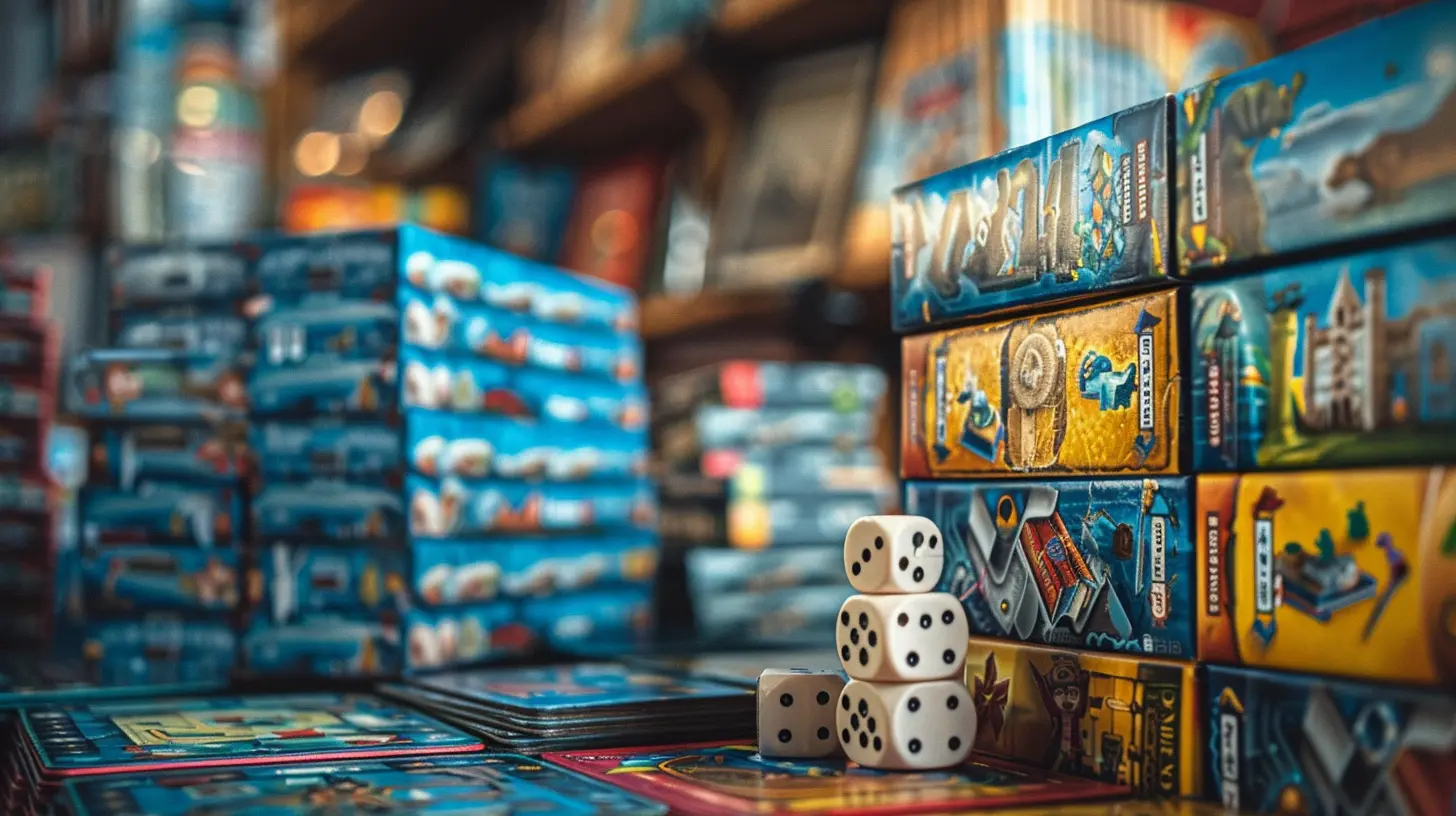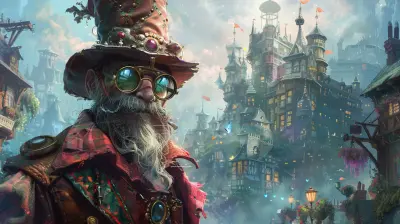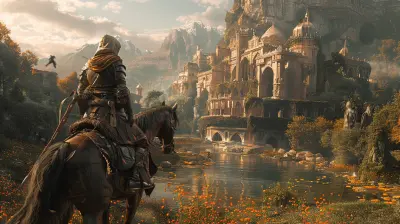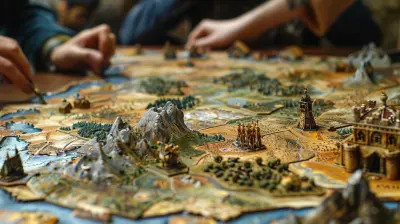27 November 2024
Board games bring people together like nothing else. They’ve been around for centuries, and yet, some of them still find a cozy spot on our shelves and at our game nights. Ever stopped to wonder what makes these games so timeless? Why do people keep coming back to classics while hundreds of new board games are released every year? Buckle up! We're diving straight into what sets timeless board games apart and why some are destined to live on forever in our hearts.
From ancient strategy games to modern staples, let’s explore the magic behind enduring classics like Chess, Monopoly, and Catan. Spoiler alert—there’s more to it than just luck and rolling dice.
What Defines a Timeless Board Game?
Timeless board games aren’t just “fun”; they go deeper. They achieve that perfect balance between simplicity and complexity, making them easy to learn but tough to master. Think about it—how many times have you seen families gather around a table for Monopoly or a heated game of Scrabble? These games have qualities that make them endure for years, even generations.So, what are these magic ingredients? Here are the key characteristics:
1. Simplicity in Rules
Complexity can be fun, but nothing beats the charm of straightforward rules. That’s why games like Checkers and Connect Four have stood the test of time. You don’t need a 20-page rulebook, and there’s no need to watch an hour-long YouTube tutorial to teach your friends. Timeless games make it easy to jump in, no matter your experience level.However, simplicity doesn't mean the game lacks depth. It just means the core mechanics can be explained in minutes. For example, Chess is technically simple—you just move pieces in specific ways—but mastering it takes years of practice.
2. Replayability
Let’s be honest: If a board game gets boring after two or three plays, it’ll end up in the donation bin faster than you can say “roll the dice.” Replayability is one of the unsung heroes of timelessness. Games like Risk or Catan shine here because every session feels different based on player decisions, strategies, and sheer randomness.The key to replayability? A mix of strategy, chance, and social interaction. Games with multiple paths to victory, random elements like card draws, or dynamic player interactions stand the test of time because they keep players coming back for more.
3. Universal Appeal
Another big factor is accessibility. Timeless board games appeal to a wide range of players—kids, adults, casual gamers, and competitive strategists. Scrabble, for example, is equally fun for word nerds and casual players just looking to play around with letters. The best games are those that can entertain an eight-year-old and an eighty-year-old alike.Board games with universal appeal often rely on universal themes, like trade, strategy, or simple interpersonal competition. Games that require intense, niche knowledge may struggle to achieve the same lasting popularity.
Classic Games That Prove Their Timelessness
Alright, now that we've laid down the foundation, let’s talk specifics. Which board games have successfully cemented their status as timeless classics? Here are a few examples that have truly stood the test of time:Chess: The King of Strategy
Chess is arguably the ultimate timeless board game. Why? Because it checks (pun intended) all the boxes! Simple rules? Absolutely. Replayability? Infinite. Universal appeal? Well, it’s been played consistently for over a thousand years!Whether you’re a casual player or a grandmaster, Chess always has something to offer. It’s like peeling an onion—the more you play, the more layers you uncover. Plus, no two games are ever alike. How’s that for staying power?
Monopoly: The Capitalist Classic
Love it or hate it, there’s no denying the staying power of Monopoly. Introduced in 1935, this real-estate trading game has caused countless family feuds—and somehow, that’s part of its charm. The combination of luck (rolling dice, drawing Chance/Community Chest cards) and strategy (buying, trading, and building properties) keeps it engaging.Sure, the game can drag on for hours, but doesn’t that make victory all the sweeter? Monopoly thrives because it taps into something universal: the love of competition and the satisfaction of building an empire—even if it’s just pretend.
Scrabble: The Wordsmith’s Delight
Scrabble is proof that intellect can be fun. Invented in 1938, this word game has remained a favorite for anyone who enjoys a vocabulary challenge. But Scrabble isn’t just for bookworms—it’s also a perfect game for casual wordplay and creativity.What’s great about Scrabble is how it adapts to its players. Whether you’re challenging yourself for the highest-scoring word or just giggling over funny combos like “CAT” and “DOG,” it’s hard not to enjoy.
Catan: A Modern Day Classic
Not all timeless games are ancient! The Settlers of Catan, more commonly referred to as Catan, is a relative newcomer (released in 1995), but it has already achieved legendary status. The game’s trading mechanics and resource management system create an engaging dynamic that feels fresh every time you play.Catan is a fantastic example of how modern board games can also achieve timelessness. Its blend of strategy, luck, and interaction makes it endlessly replayable, while its accessibility gives it universal appeal.
Clue: The Whodunit Masterpiece
Who doesn’t love a good mystery? Clue scratches that itch with its deduction-based gameplay. Introduced in 1949, this murder mystery game invites players to solve the classic “Who did it?” riddle with an ever-changing set of outcomes.Clue remains popular because it’s simple yet intriguing. The thrill of narrowing down suspects and figuring out the weapon and location never gets old.
The Secret Sauce: Why These Games Stick Around
There’s more to a board game’s staying power than just good mechanics or memorable themes. Timeless games resonate on a deeper level. They’re ingrained in our social fabric, passed down from generation to generation. Playing them reminds us of simpler times, family gatherings, and laughter-filled evenings.But here’s the kicker: timeless games continue to evolve. Think about Chess variants or themed versions of Monopoly (the Star Wars one, anyone?). These updates keep the games fresh without compromising their core essence, ensuring they stay relevant in a constantly changing world.
Honorable Mentions
Of course, we can’t ignore other brilliant board games worthy of their timeless status:- Risk: The intense strategy and world domination theme keep players hooked.
- Backgammon: One of the oldest known board games, combining strategy and luck.
- Pictionary: Proof that sometimes all you need is a pen, paper, and a wild imagination.
Each of these games contributes uniquely to the board game landscape, ensuring there’s something for everyone.
The Future of Timeless Games
So, where do we go from here? Will there be new timeless games in the future? Absolutely. The board game industry is booming with creativity, and while many games may fade away, a few gems will inevitably rise to the top and join the classics on our shelves.As long as board games continue to make us think, laugh, and connect, they’ll never go out of style. And who knows? Maybe the next timeless classic is already sitting on someone’s Kickstarter campaign.
Final Thoughts
Board games have a magical way of bringing us together. What makes a board game timeless isn’t just its mechanics or theme—it’s the memories they create, the connections they foster, and their ability to stand the test of time. Whether you’re scheming in Chess, trading in Catan, or rolling dice in Monopoly, these games never fail to remind us of the joy of play.So, next time you’re looking for a fun way to spend an evening, why not dust off an old classic? It might just remind you why some things never go out of style.









Paige Estes
Timelessness in board games lies in engaging mechanics and shared experiences.
April 1, 2025 at 4:12 AM